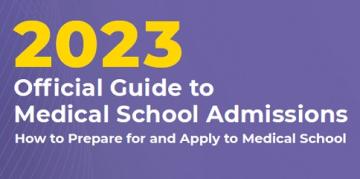
Though each medical school has its own set of requirements for applicants, a few general recommendations include one year of biology, two years of chemistry, and an English class. Furthermore, hands-on work or volunteer experience (e.g., lab work and internships) is often expected of applicants. And in addition to challenging coursework and internship experiences, applicants should look for opportunities to demonstrate a range of core competencies, such as Resilience and Adaptability, Critical Thinking Skills, and Service Orientation. It can seem like a complicated process, especially when a medical school candidate wishes to tailor their resume to appeal to their top choice schools, but the AAMC has tools and information available to help.
Every year, medical schools update their profile on the Medical School Admission Requirements™ (MSAR®) website for incoming medical school applicants. The most current edition for the class of 2020 includes some new features:
- A section dedicated to each school’s preferred types of letters of evaluation
- An option for schools to explain their out-of-state and international student admissions policy
- An Application Timeline detailing application procedures and due dates
- Expanded data (including Canadian data)
- A new “Favorites” option for applicants to specify which schools they are considering and why
- A feature where students can enter their GPA and MCAT® score on each school’s chart
Students often reach out to the AAMC with questions about the MSAR data, so we created a web page which delineates what data comes directly from the medical schools and what sections are updated with AAMC data collected from the American Medical College Application Service (AMCAS®) and other surveys, including the AAMC Data Warehouse, the Graduation Questionnaire (GQ), the AAMC Student Records System (SRS), the Liaison Committee on Medical Education (LCME) surveys, and the AAMC Tuition and Student Fees Survey. The types of data provided ranges from:
- Men/women ratio
- Regional campus(es)
- Age ranges
- Percentage of students receiving financial aid
- Countries represented
- Average graduate indebtedness
- Special programs
- Combined degree programs
- Interview information
- Waitlist information
- Deposit Information
…. And much more.
The 2019 edition of the MSAR website has updated dates and deadlines for the 2020 matriculating class. To find school-specific requirements for each U.S. and Canadian medical school, see the MSAR website.
A one-year subscription to the MSAR service can be purchased on the AAMC Store.
